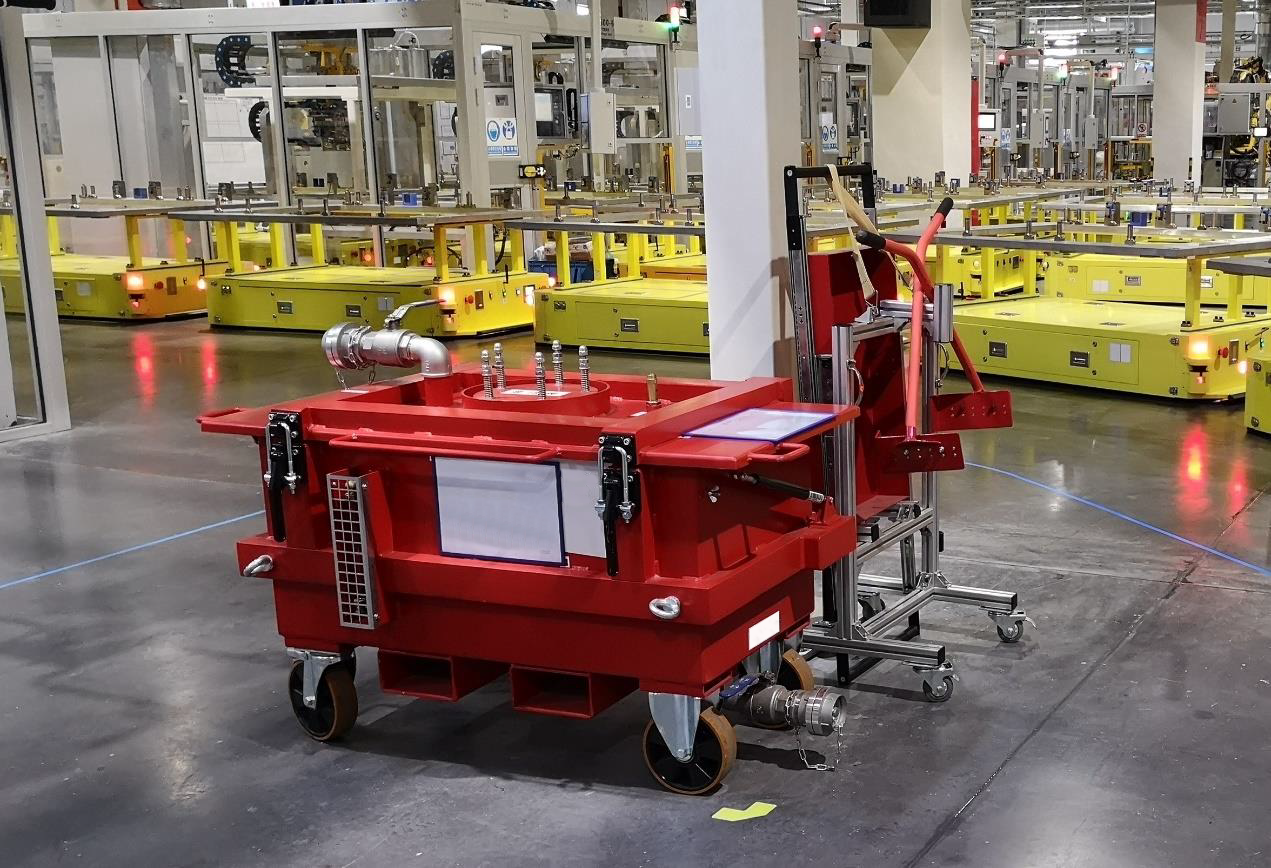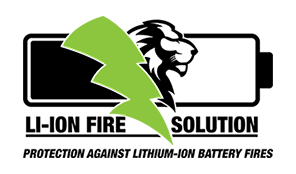
Lithium-ion batteries are starting to become more and more common in a lot of the household appliances and devices that we use from day-to-day. Phones, tablets, laptops, computers, power banks, chargers, toys, appliances, power tools, electric toothbrushes, vaping devices, solar energy storage systems, and electric bikes and scooters are just some of the devices in which we commonly see these types of batteries being used.
Although these types of batteries have a number of advantages, including that they are compact, lightweight, efficient, and powerful, they also come with a crucial need for safe storage. Lithium-ion batteries can overheat, catch fire, or explode if they are not stored and handled properly, which can result in property damage, injury, and even death. For this reason, it is important that users of lithium-ion batteries understand how to properly handle and store these kinds of batteries to reduce the risk of fire.

Lithium-ion batteries should always be stored in a cool, dry place and out of direct sunlight. This helps to reduce the risk of overheating, which is one of the biggest culprits in many lithium-ion battery fires. Around 10-27ºC is thought to be the ideal temperature for lithium-ion battery storage. Lithium-ion batteries should also be stored in a ventilated area, and given enough time to cool after each use and before they are recharged. If you are going to be storing a lot of lithium-ion batteries, you may also want to consider investing in a specially designed lithium-ion battery storage cabinet, which offer one of the safest solutions for storing these kinds of batteries. Find out more about our Lithium-Ion Battery Storage Solutions and Cabinet Suppression Systems here.
Generally speaking, the risk of fire resulting from lithium-ion batteries is highest when they are not being handled and stored properly. However, despite taking all of the necessary precautions, it is impossible to eliminate the risk of overheating or fire entirely, just as with any other type of battery. Having access to a proper fire extinguisher that can quickly and effectively extinguish lithium-ion battery fires, such as Li-Ion Fire’s F-500 EA range, is the best way to protect yourself and your premises in the event of a fire or explosion, if you are going to be storing lithium-ion batteries.
With next-generation encapsulator technology and a non-corrosive multipurpose formula, Li-Ion Fire’s F-500 EA extinguisher range is an effective solution for cooling, controlling, and extinguishing lithium-ion battery fires. Find out more about how our extinguishers work and what makes Li-Ion Fire’s F-500 EA range special here Protection Against Lithium-Ion Battery Fires (lithium-ionfireprotection.com.au)
Containing lithium-ion batteries when they are being stored or in charge is a good practice to undertake to help minimise the fire risk or spread in the event of a fire. Options such as fire-resistant pouches to store and charge batteries in are a cost effective and practical option. Other considerations such as delegating storage and charging areas for lithium-ion batteries away from other flammable materials is a sensible start point in managing lithium-ion fire risk.
Larger examples of battery storage include, but are not limited to, Battery Energy Storage Systems (BESS), solar panel battery storage systems, and data centre backup battery storage systems. We offer a variety of solutions to help battery manufacturing, and storage facilities mitigate and respond to lithium-ion battery fires. Our solutions include hose induction systems and CCTV fire detection cameras.
Early detection of lithium-ion battery fires, as well as any fire, is crucial in minimizing damage and destruction. Our CCTV fire detection cameras utilize advanced imaging and infrared spectrum technology to ensure early fire detection and reliable monitoring. These cameras can detect fires within seconds and send real-time alerts, allowing for a swift response. Additionally, our CCTV fire detection cameras incorporate AI technology to enhance accuracy by up to 99% and reduce false alarms. Installing specialized fire detection cameras is recommended for early detection in high-risk areas such as battery manufacturing and storage facilities.
